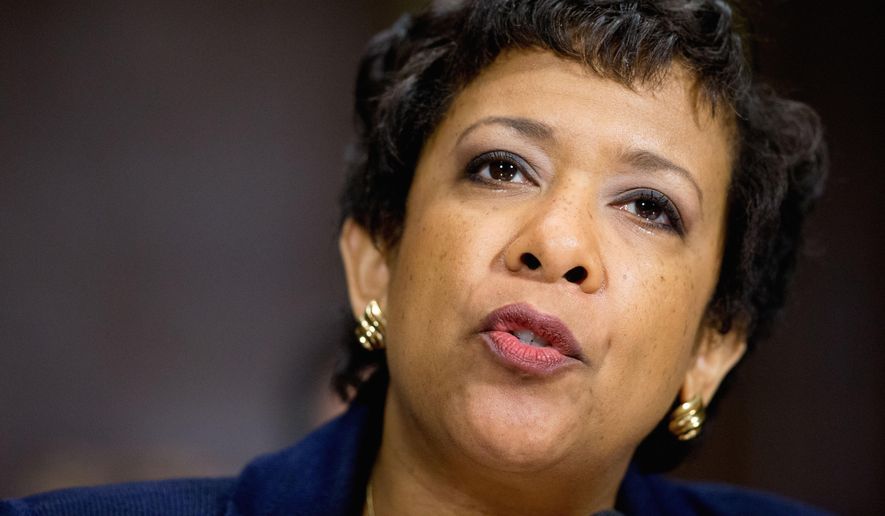Convicted felons should be able to exchange prison ID cards for state-issued ones once their sentences are served, said Attorney General Loretta E. Lynch, touting a step she believes would make it easier for the thousands of people released from the Bureau of Prisons each year to reintegrate back into society.
Ms. Lynch announced Monday that she was urging governors across the country to back the effort as part of a larger Justice Department initiative that focuses on reducing recidivism by revamping aspects of the criminal justice system.
“Too often, Americans who have paid their debt to society leave prison only to find that they continue to be punished for past mistakes,” Ms. Lynch said in Philadelphia as part of the kickoff of the first DOJ organized National Reentry Week. “They might discover that they are ineligible for student loans, putting an education out of reach. They might struggle to get a driver’s license, making employment difficult to find and sustain.”
In letters to governors of all 50 states, Ms. Lynch noted that several states have policies in place that assist inmates in obtaining ID cards upon their release from state facilities, but said the same policies do not help those returning from federal prison. Allowing federal inmates to use their BOP ID cards and release papers from federal facilities to obtain state ID cards would “have a powerful impact,” she said.
“As a practical matter, it would standardize the current patchwork of state policies around providing returning citizens with identification, and it would eliminate one of the most common — and most harmful — barriers to reentry across the United States,” Ms. Lynch said.
Recidivism has proven to be a difficult problem to tackle in the past. A 2014 report from the Bureau of Justice Statistics that tracked 404,638 individuals after their release from state prisons in 2005 found that 68 percent were re-arrested within three years of their release. After five years, the rate of recidivism increased to 76 percent.
An estimated 40,000 individuals are released each year from the Federal Bureau of Prisons after serving time, according to the Justice Department. The number increases to more than 600,000 individuals released annually when combined with state prisons.
The Justice Department has pushed in recent years to reform the criminal justice system, re-examining policies that have resulted in long sentences handed down for drug users and other nonviolent offenders and caused prison populations to swell.
Alongside the call for removing hurdles for state ID cards, the DOJ’s “Roadmap to Reentry” plan, released Monday, also calls for a series of other policy changes within the Bureau of Prisons to help better prepare inmates for their release from prison, including through better mental health and substance abuse assessment and additional education and job training opportunities.
The plan calls for an individualized reentry plan to be developed for every inmate and the expansion of video visitation services to all female BOP facilities by June and, eventually, to all facilities.
The DOJ and the U.S. Department of Housing and Urban Development also announced a series of grants Monday that are meant to provide help to young adults who live in public housing and have criminal records. The grants, to 18 housing authority agencies across the country, will provide aid such as criminal record expungement, legal services such as creation or modification of child support orders and guidance for readmission to school.
• Andrea Noble can be reached at anoble@washingtontimes.com.




Please read our comment policy before commenting.